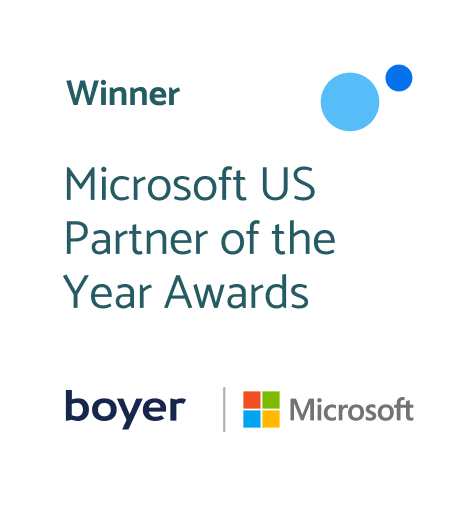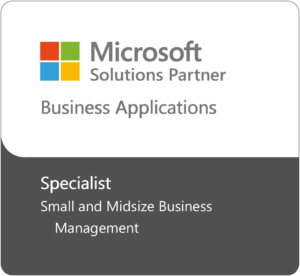Microsoft has been encouraging most of their Dynamics ERP partners to continue servicing their existing client bases and to also select a market or two where they can be uniquely knowledgeable and valuable. This blog post is about the accomplishment of that mission – the pros and cons, the benefits, and the drawbacks of making such a move.
For me, it was at first unappealing to go down this road of “putting more eggs into one basket.” My reasons were threefold: (1) we had good success at attracting prospects to events comparing Dynamics GP to Dynamics NAV to Dynamics SL, (2) we had limited success in trying to focus on verticals as broad as “distribution,” “professional services organizations,” and “non-profits,” and (3) we had purchased the client list of a pretty savvy individual whose company went out of business by focusing too much on a vertical.
Where We are Now
One of the benefits of being in business for 20 years and being surrounded by a lot of talented co-workers is that you get a fair amount of attention from Microsoft. Microsoft offers a “RAMP” marketing program set to point your firm in one or two directions from a marketing standpoint. So, here we are, having had all of the education around why this makes sense, and I’m finally convinced that this makes sense. We’ve decided that for our Dynamics NAV practice we are going to start a micro-practice around frac sand companies. We selected this vertical because we are uniquely located between much of the frac sand (75% of it comes from Wisconsin) and much of the oil production or hydraulic fracturing in the Bakken Oil Basin in North Dakota. We also happen to have a couple of frac sand mines that are about to buy NAV from us. We have created limited intellectual property around this business, but we have taken the time to understand thoroughly what firms in this industry consider to be their biggest challenges.
Having attended a two-day conference in Pittsburgh in November, I got a pretty good understanding of the manufacturing process and of the barriers to making more money. We have documented the flow of inventory from the mines themselves into their wet plants, into their dry plants, and screening for sizes, over to their silos where they store the three different types of sands to load onto railcars.
Where We Want to Go
There are only 69 owner operators of frac sand mines in Wisconsin. Our goal is to add 3-5 per year over the next several years. The price of oil has been dropping lately, making the frac sand industry more competitive. What better way to help you run your plant more efficiently than a tool that does just that?
Plans
We wrote a business plan around the frac sand business, had a few people edit it here at Boyer, and then sent it to a firm in Los Angeles called “GrowThink.” They provided additional feedback on the plan but did not add the type of insight I was hoping for in contacting them; most of the valuable input was contributed internally. Our plan contains the below screen shot from Dynamics NAV. It shows how railcar tracking (critical to sand mines) can be handled with zero customizations by using the lot tracking field. Lots like railcars can be reused.
We use Item Tracking on Inbound Purchase transactions and Outbound Sales transactions only to track railcars.
In this way, NAV does not require you to consume inbound lots on outbound entries.
Enter an order line for a single quantity that would be filled in either one or many cars (Lots) of certain quantities. For example, the process would be to enter a purchase order or sales order, and then, in item tracking for the line, enter the Lot No.’s (Rail Car No.’s). In this way, when receipts/shipments are posted, you’ll be left with item ledger entries with Car No. (Lot No.) information.
Challenges
The price of oil continues to go down, as of today, February 3, 2015. It appears that the Saudi’s are trying to put the American hydraulic fracturing firms out of business with their production. There are over a billion cars on the planet, and most items made of plastic require oil, so we are thinking this is a temporary lull. The Bakken Oil fields are continuing to pump 1 million barrels a day from Western North Dakota.
Success
When I met with a local frac sand mine’s controller, I could tell that he liked our focus on his industry very much. He liked that we were able to share some good ideas that other mines had in his industry, such as using different types of dryers – fluid bed and rotary – to dry their sand. He also referred a key employee to us that we hired to do consulting. We are about ready to launch our marketing element of this plan, and we are excited to see what leads we can create in an industry where we have considerable expertise.
Something about verticalizing does take a lot of work to start, but once you’ve done the research, met with people in the industry, and understand the problems companies are facing, it can really pay off. Being an expert in a field allows you to help your clients, proactively thinking about ways to make businesses better.
For more information on how Dynamics NAV or other Dynamics ERP products might benefit your company, please contact us at any time.
For additional news and tips and tricks, subscribe to our blog.








